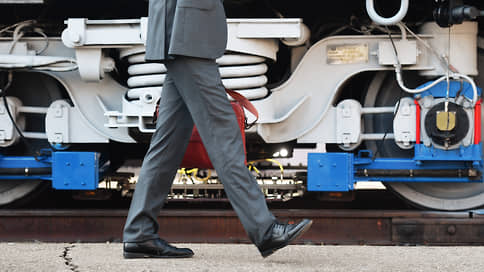FAS accuses Evraz and OMK of holding prices for wagon wheels
[ad_1]

FAS again decided to check Evraz and OMK, Russia’s largest producers of railcar wheels, for overpricing in the third quarter of 2022. According to the Union of Railway Equipment Operators, wheel prices remained stable in the third quarter. However, the regulator believes that companies had the opportunity to reduce prices in the third quarter due to cheaper raw materials, but did not. According to analysts, it is important to determine whether there was an actual increase in prices, or whether the FAS is based on data from manufacturers’ price lists, which do not reflect the real prices of shipments.
The Federal Antimonopoly Service initiated antimonopoly proceedings against the Vyksa Metallurgical Plant (VMZ, part of OMK), as well as Evraz NTMK and Evraz TK, which are engaged in the production and marketing of railway wheels. According to the service, metallurgists unreasonably inflated prices for their products in the third quarter of 2022. An analysis of their activities showed that the prices set for this period exceeded the amount of necessary expenses and profits for production and sale. At the same time, Evraz and OMK dominate the railroad wheel market. “The service found that this market is highly concentrated and characterized by the presence of barriers, and access to it requires significant time and financial costs,” the statement says. message services. Metallurgists did not respond to Kommersant’s request.
This is not the first time the service has accused the manufacturers of solid wheels of overpricing their products. In 2019-2020, the FAS investigated the VMZ case and found it guilty of inflating prices in 2019 “in the face of shortages, uncertainty and negative consumer expectations.” Prices for wheels for some consumers increased by more than 40% by June 2019, FAS noted. Then the association of metallurgists “Russian Steel” took the side of VMZ. She pointed to FAS attempts to regulate prices in a competitive market, which leads to a violation of its balance.
The FAS did not provide detailed information on the increase in prices for solid wheels in the third quarter of 2022. The regulator explained to Kommersant that although the cost of raw materials for solid-rolled wheels fell in the third quarter, “there was no commensurate price change.” “The validity of prices in other periods will be analyzed by the service as part of the consideration of cases,” the press service told Kommersant.
According to the Union of Railway Equipment Operators, during 2022 the price per wheel was at the level of 80.5–85.5 thousand rubles, while the price increase was observed only at the beginning of 2022, and in the second and third quarters they were stable.
According to the Association of Railway Equipment Manufacturers, the market for solid-rolled wheels for freight cars in 2022 grew by 6.4% and amounted to 1.6 million units, of which 1.4 million units are from Russian manufacturers. Almost all the rest is supplied from Kazakhstan. Historically, a significant number of wheels were supplied to Russia by the Ukrainian Interpipe, but at first its products were subject to a protective duty of 34.22%, and in December 2020 they were completely banned from import.
Mikhail Burmistrov, General Director of Infoline-Analytics, emphasizes that it is important to distinguish between the prices at which deliveries are made under long-term contracts (which are generally lower, and at the same time to a greater extent for car building plants than for car repair companies), and prices indicated by manufacturers in their price lists. The latter are at least 7-10% higher than prices under contracts even with small clients, not to mention long-term contracts. Therefore, the expert says, if the proceedings are based on prices in the price lists of manufacturers, then there is a question about the appropriateness of taking into account such prices.
[ad_2]
Source link





